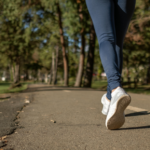Every day, millions of people type fitness questions into Google, looking for simple, clear, and reliable answers. From workout timing to fat loss myths, here are 20 of the most searched questions—explained with science-backed advice you can actually use.
- What Should I Eat Before a Workout?
A balanced pre-workout meal should be eaten 2–3 hours before exercise and include complex carbs + lean protein (e.g., chicken with brown rice). If you have less time, a banana with peanut butter or Greek yogurt with oats works well. Carbs give you energy; protein helps protect and repair muscles.
- What Is Pre-Workout, and Does It Work?
Pre-workout supplements usually contain caffeine, creatine, beta-alanine, and carbs to boost energy, focus, and endurance. They can help performance, but aren’t necessary for results—good nutrition and hydration matter more.
- What Should I Eat After a Workout?
Within 15–60 minutes, aim for 20–40g protein plus carbs to replenish glycogen. Great options: a protein shake with fruit, or eggs with whole-grain toast.
- How Many Exercises Should I Do Per Workout?
For most people, 4–8 exercises per session is plenty, targeting multiple muscle groups. Beginners may benefit from full-body workouts; advanced lifters often split by muscle group.
- How Many Days Should I Work Out Per Week?
For health and fitness:
- Beginners: 3 days/week
- Intermediate/Advanced: 4–6 days/week
Aim to train each muscle group at least twice per week.
- Can I Lose Weight Without Exercise?
Yes—weight loss is driven by a calorie deficit. However, exercise helps preserve muscle, boosts metabolism, and improves overall health.
- How Do I Get Six-Pack Abs?
You’ll need to lower body fat (usually under 15% for men, 20% for women) through diet and cardio, plus strengthen your core with planks, leg raises, and rotational exercises. Genetics also play a role.
- What’s the Best Exercise for Weight Loss?
There’s no single “best.” A mix of strength training + cardio works best:
- Strength: preserves muscle mass
- Cardio: increases calorie burn
Try compound lifts, HIIT, and brisk walking.
- How Long Should a Workout Be?
Most workouts last 45–75 minutes including warm-up and cool-down. Shorter, high-intensity sessions can be just as effective if you’re short on time.
- Should I Lift Weights or Do Cardio First?
It depends on your goal:
- Strength/muscle building: Lift first.
- Endurance: Cardio first.
Mixing both is fine if programmed smartly.
- How Long Does It Take to See Results?
Most people notice small changes in 4–6 weeks, and bigger changes in 3–6 months. Consistency with training and diet is key.
- How Much Protein Do I Need Per Day?
For active adults: 1.6–2.2g of protein per kg body weight (0.7–1g per pound). Spread it evenly across meals.
- What’s the Best Time to Work Out?
The “best” time is when you can stick to it. Performance may peak in the late afternoon/evening, but morning workouts can boost daily energy.
- Is It Better to Work Out in the Morning or at Night?
Morning workouts improve consistency and help set the tone for the day; evening workouts often allow for greater strength due to warmer muscles and higher energy levels.
- Can I Build Muscle Without Weights?
Yes—bodyweight exercises like push-ups, squats, pull-ups, and dips can build muscle, especially for beginners. For advanced gains, progressive overload (adding resistance) is key.
- Do I Need to Take Supplements to See Results?
No. A good diet covers most needs. Common helpful supplements:
- Protein powder (convenience)
- Creatine (strength & endurance)
- Vitamin D & Omega-3s (if deficient)
- How Do I Stay Motivated to Work Out?
Set clear goals, track progress, train with a friend, and choose activities you enjoy. Motivation comes and goes—build discipline and habits to stay consistent.
- Should I Stretch Before or After Exercise?
- Before: Do dynamic stretches (leg swings, arm circles).
- After: Use static stretches to improve flexibility and reduce muscle tension.
- How Much Water Should I Drink Daily?
Aim for 2–3 liters per day, more if you’re sweating heavily. Check hydration by the color of your urine—it should be pale yellow.
- How Can I Prevent Workout Injuries?
Warm up, use proper form, progress gradually, listen to your body, and don’t skip rest days. Overtraining is a fast track to injury.
Key Takeaways
- There’s no magic pill—results come from consistency with training, nutrition, and recovery.
- Both cardio and strength training have benefits—combine them for best results.
- Recovery, hydration, and sleep are just as important as the workouts themselves.



